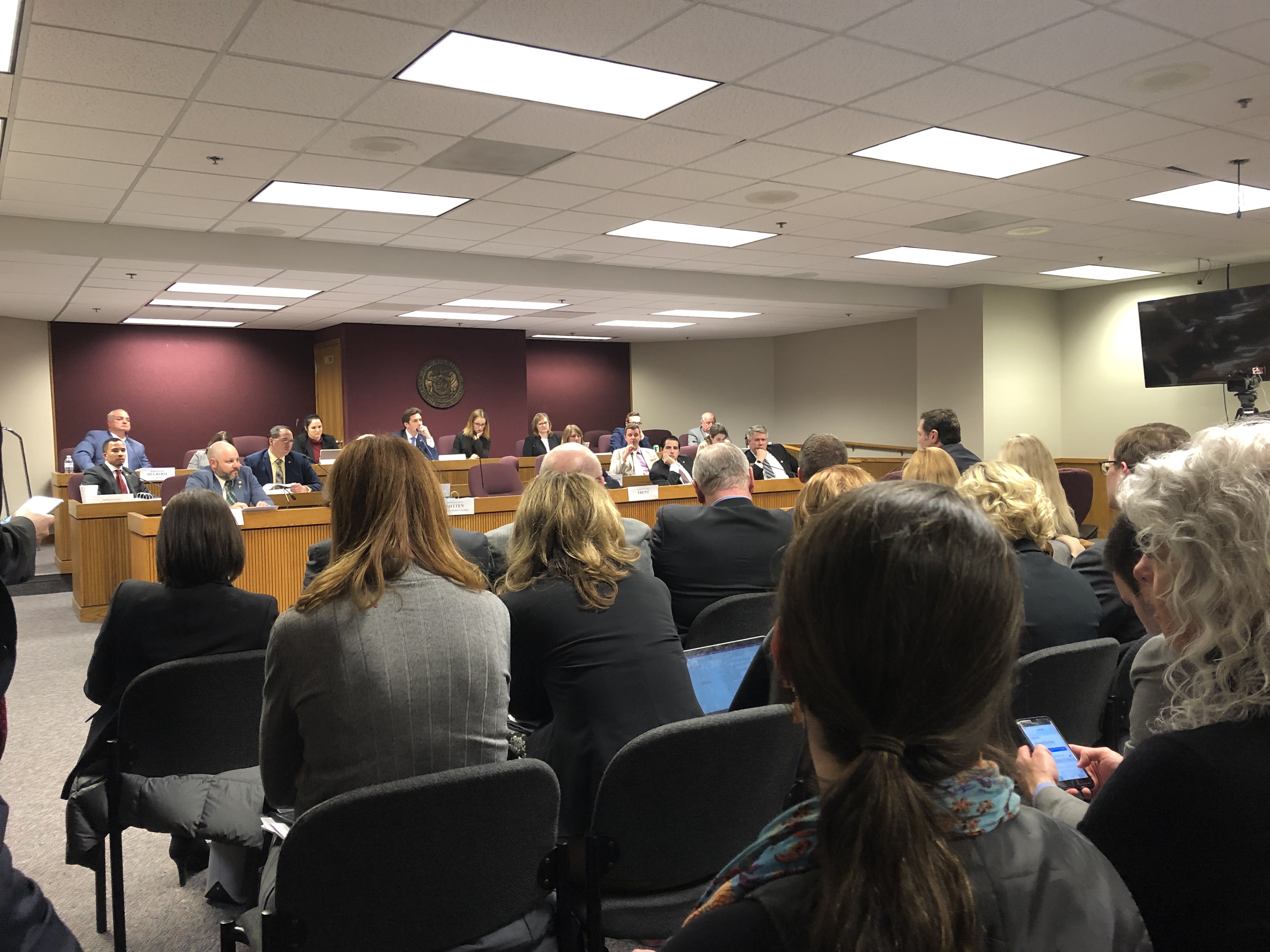JEFFERSON CITY, Mo. — A bill altering how colleges handle sexual assault and misconduct investigations has been significantly scaled back to address the concerns raised in a public hearing last week.
With roughly two dozen changes made to HB 573, the House Judiciary Committee voted 11-6 to send the amended version of the proposal forward.
The original version of the bill drew criticism for specific provisions from supporters and opponents alike during an extensive public hearing. In the last week, stakeholders spent long hours working to improve the bill, according to Chairman David Gregory.
“I think it is a much better bill than it was last week,” said Rep. Bruce DeGroot, although he did point out he still thinks it’s not perfect.
As amended, Rep. Dean Dohrman’s measure still brings a level of uniformity to how cases are handled across the state, gives those involved in cases an outside appeals option with the Administrative Hearing Commission, and requires all relevant information be included in the findings.
Substantial, substantive changes were made to the measure by the Judiciary Committee.
Added in were rape-shield protections. Rape-shield laws protect victims of sexual assault or harassment from being asked questions about past sexual encounters, previous relationships, unrelated social media posts, or what kind of clothing they were wearing at the time of an alleged assault.
In cases where either the accuser or accused is unsatisfied with the result on the college’s determination, they would be able to transfer their case to the Administrative Hearing Commission. All of the Commission’s proceedings would be closed and confidential. The commission would also act like a trial de novo, or a strike redo of the hearing.
The new version of the bill only allows future cases where a determination has been made to transfer the case to the Administrative Hearing Commission. The original version allowed cases to be transferred at any stage in the investigation and any cases previously decided could be transferred.
Institutions of higher education would be required to use the same evidence standard when making a determination for all cases. A college will be able to decide if the way to use a preponderance of evidence or clear and convincing evidence as their standard of proof, but that standard will have to be consistent across all cases.
“You can’t apply different standards for different types of cases,” said Gregory when describing the change.
Colleges would also be required to keep records of all their proceedings. Either written, audio, or another form, schools must have some sort of record.
The substitute bill removes the civil cause of action against a complainant.
“The last thing we want is a victim, a complainant, from being afraid to come forward because they could be sued personally,” said Gregory.
He did point out that if someone was spreading a false accusation publically, he or she could still be open to a defamation lawsuit.
Even with all the changes in the bill, some could not support the measure.
“We are attempting to inject legislative authority into the private determination of a disciplinary hearing within a college and there is nothing here that excludes a private college,” said Rep. Mark Ellebracht.

Alisha Shurr was a reporter for The Missouri Times and The Missouri Times Magazine. She joined The Missouri Times in January 2018 after working as a copy editor for her hometown newspaper in Southern Oregon. Alisha is a graduate of Kansas State University.





